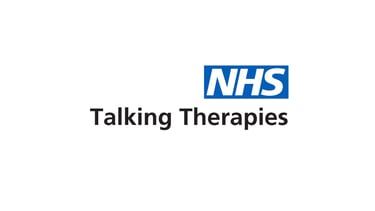Therapy Isn’t Just for Crises
Reframing Therapy as Emotional Maintenance, Not Emergency Care


Therapy Isn’t Just for Crises: Reframing Therapy as Emotional Maintenance, Not Emergency Care
When most people think of therapy, they imagine sitting in a room after something has gone very wrong — a crisis, a loss, a relationship breakdown, or a period of intense anxiety or depression.
And of course, therapy can be a lifeline in those moments. But the truth is, therapy isn’t only for when you’re in crisis. It can also be an ongoing form of emotional maintenance — a way to look after your mental health before things start to unravel.
Why we wait until things fall apart
In our culture, we’re encouraged to “get on with it”, to be resilient, to cope. Many people only reach out for therapy when they feel they’ve run out of options.
There’s still a quiet stigma that says you need a big reason to seek therapy — as though emotional pain must reach a certain threshold before it’s valid. Yet we’d never apply that logic to physical health.
We don’t wait until our teeth are falling out before going to the dentist.
We don’t wait until our car breaks down before checking the oil.
So why wait until we’re falling apart emotionally before reaching for support?
Therapy as emotional maintenance
Therapy can be a powerful tool for self-awareness, prevention, and growth, not just recovery. It’s a space to explore the everyday patterns, thoughts, and habits that shape how we relate to ourselves and others — and to make small adjustments before they become crises.
Regular therapy can help you:
Notice early signs of burnout or overwhelm
Strengthen boundaries and communication
Build self-compassion and emotional regulation
Develop healthier coping strategies
Stay connected to your authentic self
In other words, therapy can help you stay well, not just “get well”.
It’s not self-indulgent — it’s self-respect
Some people worry that attending therapy when life feels “fine” is self-indulgent. But just as we go to the gym to maintain physical health, therapy helps keep our emotional world healthy and balanced.
Making space for therapy when you’re not in crisis often allows for deeper exploration — without the urgency or distress that crisis work can bring. It’s where real personal development happens: understanding what fulfils you, what drains you, and what keeps you aligned with your values.
Therapy for neurodivergent and LGBTQIA+ clients
For many neurodivergent and LGBTQIA+ people, therapy can also be a space for identity exploration and unmasking, not just problem-solving. It offers a place to unpack experiences of stigma, internalised shame, or simply the exhaustion of navigating a world that isn’t always inclusive.
This kind of reflective, affirming therapy isn’t about “fixing” anything — it’s about understanding and nurturing yourself in a world that often misunderstands you.
A mindset shift: from crisis response to care routine
Imagine if therapy were seen as part of everyday self-care — like exercise, sleep, or healthy eating. We might feel less ashamed about seeking support, and more able to sustain our wellbeing long-term.
Therapy can be a steady anchor in life’s ups and downs, not a last resort when things have already gone wrong.
When we reframe therapy as ongoing emotional maintenance, we empower ourselves to live more consciously, more compassionately, and more connected to who we really are.
If you’re considering therapy…
You don’t need to wait for things to fall apart to reach out. Therapy can be a proactive step towards maintaining your emotional wellbeing and learning more about yourself along the way.
Whether you’re facing a challenge, feeling a bit lost, or simply wanting to grow, therapy can meet you where you are — gently, without judgement.






